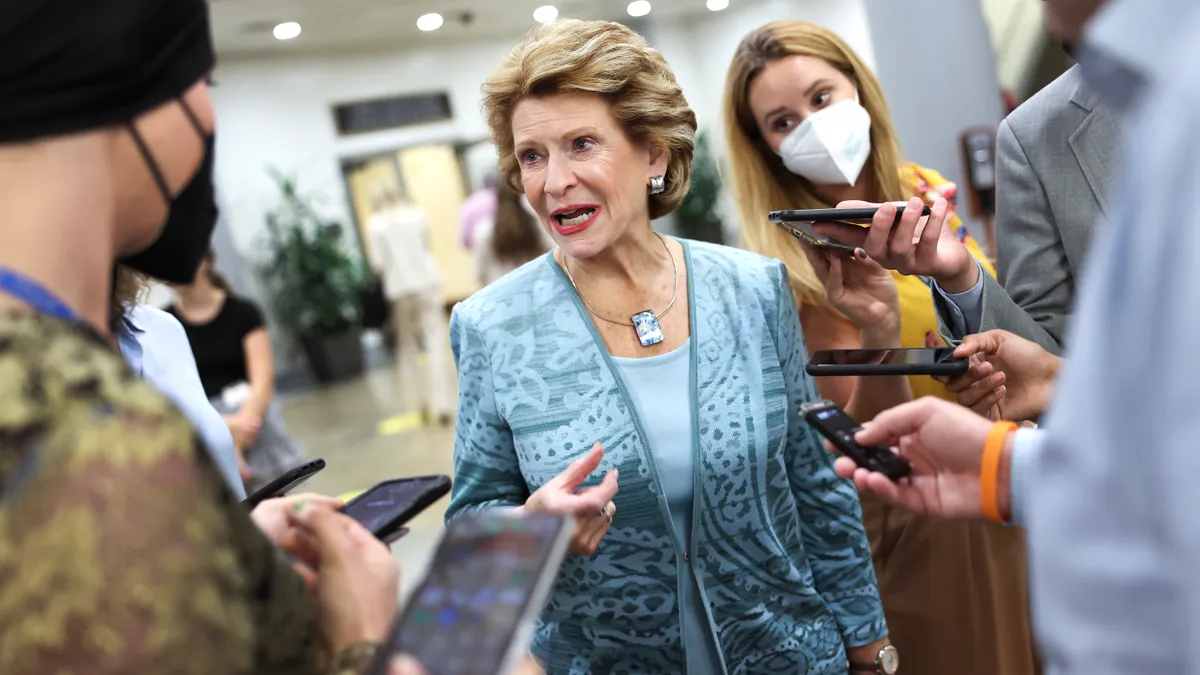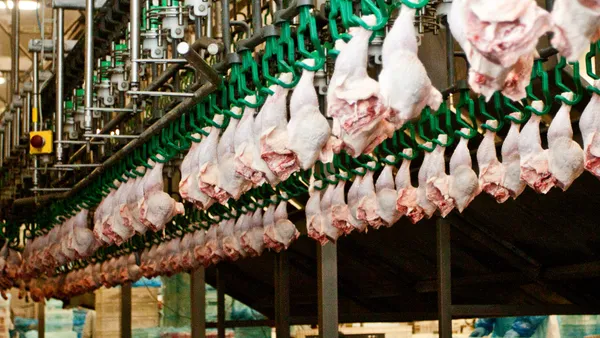Dive Brief:
- The U.S. Senate is aiming to get the farm bill done before year’s end as negotiators struggle to strike a bipartisan agreement.
- “I’m aiming for December,” said Agriculture Chairwoman Sen. Debbie Stabenow at a Bipartisan Policy Center event on Tuesday. “It really is a question of resources and being able to put together the bipartisan vote.”
- The current farm bill is set to expire Sept. 30, though agriculture producers aren’t expected to feel the effects until the beginning of next year.
Dive Insight:
Top negotiators are stressing the need for a bipartisan compromise as both Democrats and Republicans jockey for funds and try to push big changes.
“Right now we have ideas [from] Democrats that Republicans wouldn’t vote for on resources,” said Stabenow, a Democrat from Michigan. “We have Republicans who have ideas that will take the conservation money, will take nutrition money …. [and] lose all the Democratic votes. That’s not viable.”
Neither the House nor the Senate have released a draft of the farm bill, which is passed every five years and is the largest spending bill in the U.S. for the agriculture industry. Although the House typically releases its draft first, dysfunction in the lower chamber is pushing the Senate to take action.
“Despite the House Ag Committee’s best efforts, I think it will be very difficult” for them to pass the spending package, said Stabenow. “We’ve just got to get a bill put together, and as soon as we get a bill put together, then we will move it.”
Any package approved by the Senate would still need sign off from the House, which could be tough as far-right lawmakers look to make major cuts to food assistance programs.
Beyond nutrition, another major point of contention between both sides is what to do with additional $36.7 billion in conservation funding under the Inflation Reduction Act. Republicans want to roll that money into the overall farm bill budget to be used on commodity assistance or other titles, while Democrats want the money preserved for climate initiatives.
A Senate GOP analysis found that if IRA resources were moved into the funding baseline and remained dedicated to climate, the conservation title would “surpass commodity support programs as the second-largest farm-related title in the farm bill behind crop insurance.”
Stabenow said she will shut down calls to shuffle around any climate funding.
“The number one threat to our farmers is the weather beating them over the head — it’s the climate crisis,” she said. “I will not support taking those dollars and putting it in another title.”











